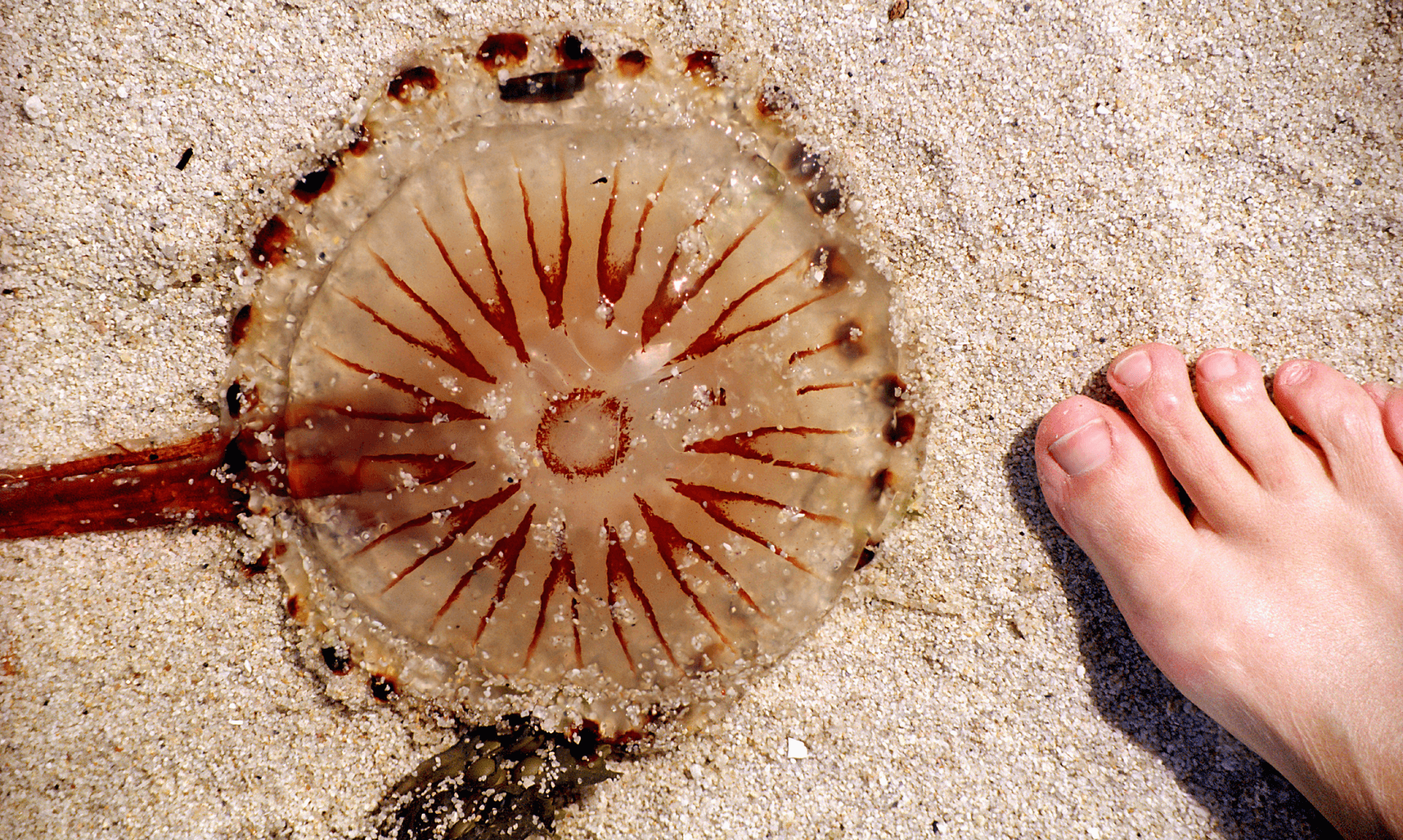RNLI Issues Advice on Jellyfish Stings as Sea Temperatures Rise
RNLI warns of jellyfish risk as warmer waters bring more stings
As sea temperatures rise across the UK, beachgoers are being warned to watch out for jellyfish stings – and to speak to RNLI lifeguards if they get caught out.
Common jellyfish and what to look for
Jellyfish are a fairly common sight around Scotland’s coastline during the summer, especially in July and August. You might spot them in the water or washed up in groups along the shore, often referred to as blooms.
Moon jellyfish are among the most frequently seen. They’re translucent and easy to recognise by the four pinkish-purple circles in the centre of their bodies. Thankfully, their sting is mild and usually harmless.
However, other species such as the large reddish Lion’s Mane jellyfish or the Compass jellyfish are more dangerous and can deliver painful stings.
How to tell if you’ve been stung
Stings from jellyfish can cause:
-
Pain
-
Redness
-
Swelling
-
A stinging sensation
If you experience any of these, let a lifeguard know straight away. They can monitor your condition and provide first aid if necessary.
What to do after a sting
RNLI lifeguards advise against rinsing the area with fresh water or using anything containing alcohol, as this can make things worse. Instead, use a card to carefully scrape off any tentacles still on the skin.
After that, head back into the sea between the RNLI’s red and yellow flags. The cold salt water helps soothe the pain and stop the remaining stingers from releasing more venom.
Warning signs to watch for
If you begin to feel unwell, or notice a rash or swelling after a sting, it could be an allergic reaction. Speak to a lifeguard immediately.
Lifeguards can help with more than stings
RNLI lifeguards are trained in casualty care and can assist with everything from jellyfish stings, BBQ burns and cuts to serious emergencies such as heart attacks, spinal injuries and anaphylactic shock.
Whether it’s a minor injury or something more serious, don’t hesitate to ask for help. That’s what they’re there for.
Share This Story, Choose Your Platform!
To keep up with the latest cornish news follow us below
Follow CornishStuff on Facebook - Like our Facebook page to get the latest news in your feed and join in the discussions in the comments. Click here to give us a like!
Follow us on Twitter - For the latest breaking news in Cornwall and the latest stories, click here to follow CornishStuff on X.
Follow us on Instagram - We also put the latest news in our Instagram Stories. Click here to follow CornishStuff on Instagram.
You Might Also Be Interested In
Discover More In Cornwall
Daily Cornish news by email
The latest daily news in Cornwall, sent direct to your inbox.

































